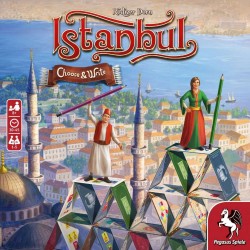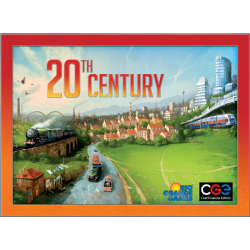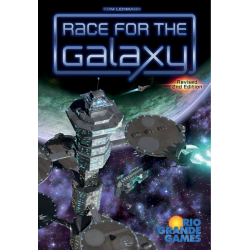No products in the cart.
Active filters
Windmill Valley
It’s the late 19th century, and more than 9000 windmills dot the landscape of the Netherlands, some of them purpose-built to dry the lowlands, called polders. In the polders between these windmills are fields filled with colorful tulips—the flower that once was a part of the turbulent history of the first financial bubble but is now simply a quintessential part of the Dutch landscape, especially on the famous Bloemen Route (or “Flower Route”).
Gaia
Gaïa is a 2-5 player game in which you create a world, instill life in it, build cities, try to satisfy their needs, and use godly powers to shape the world to your benefit.
Istanbul: Choose & Write
Once again, players take on the role of shrewd merchants whose goal is to gather goods and lira, then trade them for the precious rubies needed to win. In Istanbul – Choose & Write, instead of a common set of locations in the middle of the table, each player has a bazaar in front of them as a game plan, a personal tracking sheet where players will mark their choices as they play.
20th Century
In the 20th Century, every region strives to develop. Some become financial leaders, others become centers of learning. Science and commerce propel nations into the future – but what kind of future? Growth produces waste, and advances come with a cost to the environment. How will you mitigate the inevitable ecological catastrophes?
[DAMAGED] Windmill Valley
It’s the late 19th century, and more than 9000 windmills dot the landscape of the Netherlands, some of them purpose-built to dry the lowlands, called polders. In the polders between these windmills are fields filled with colourful tulips—the flower that once was a part of the turbulent history of the first financial bubble but is now simply a quintessential part of the Dutch landscape, especially on the famous Bloemen Route (or “Flower Route”).
Race for the Galaxy
Race for the Galaxy
In the card game Race for the Galaxy, players build galactic civilizations by playing game cards in front of them that represent worlds or technical and social developments. Some worlds allow players to produce goods, which can be consumed later to gain either card draws or victory points when the appropriate technologies are available to them. These are mainly provided by the developments and worlds that are not able to produce, but the fancier production worlds also give these bonuses.





![[DAMAGED] Windmill Valley](https://kienda.co.uk/6094-home_default/windmill-valley.jpg)





![[DAMAGED] Windmill Valley](https://kienda.co.uk/6094-medium_default/windmill-valley.jpg)
